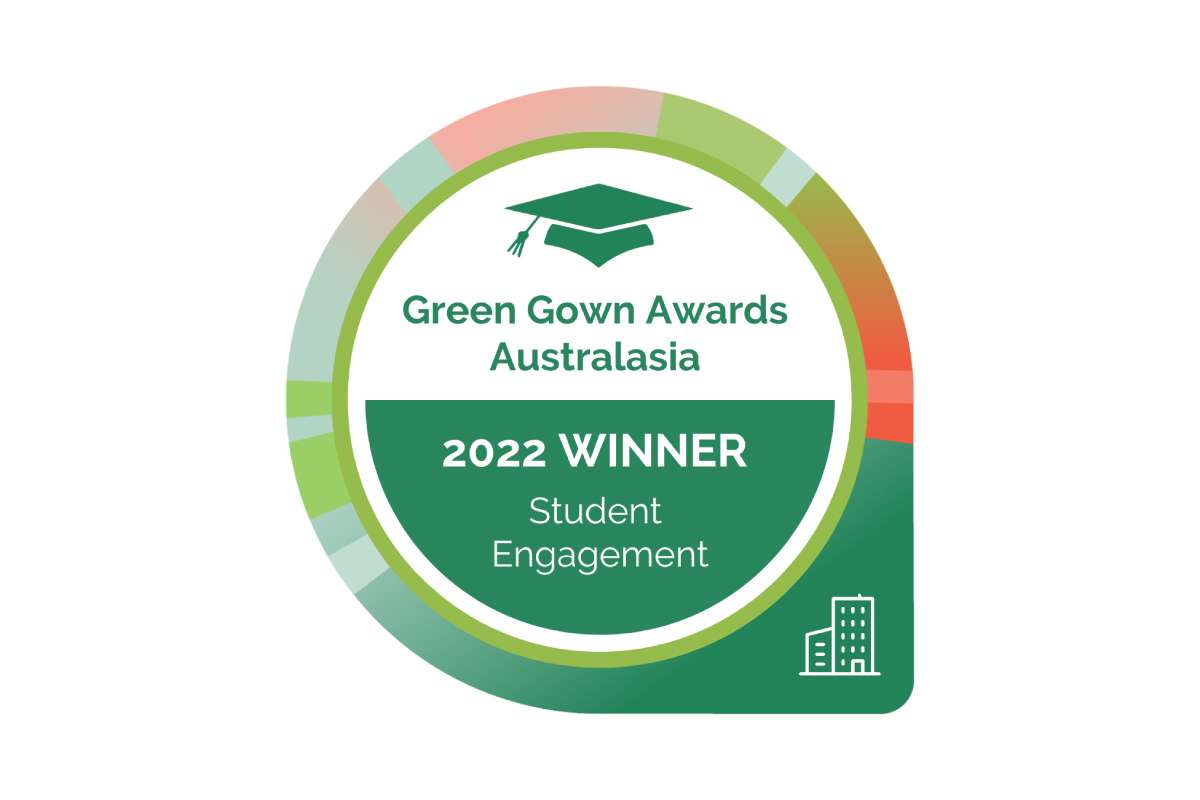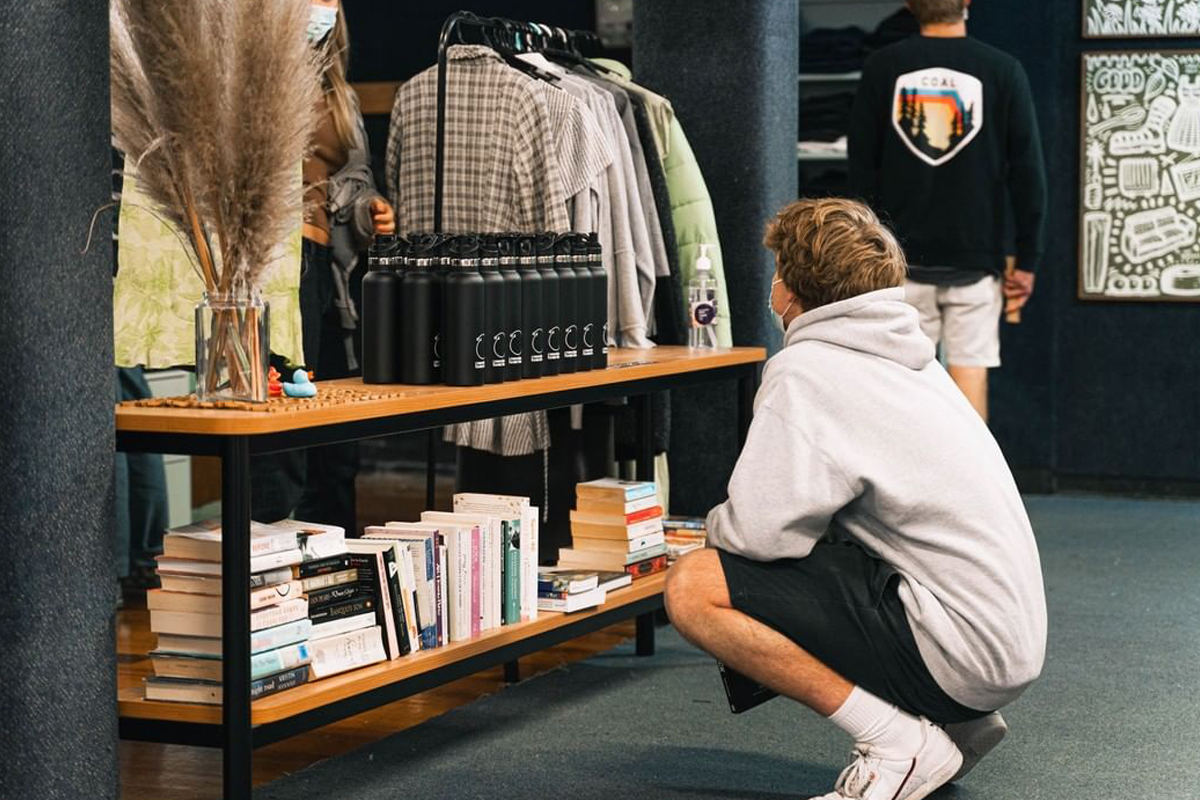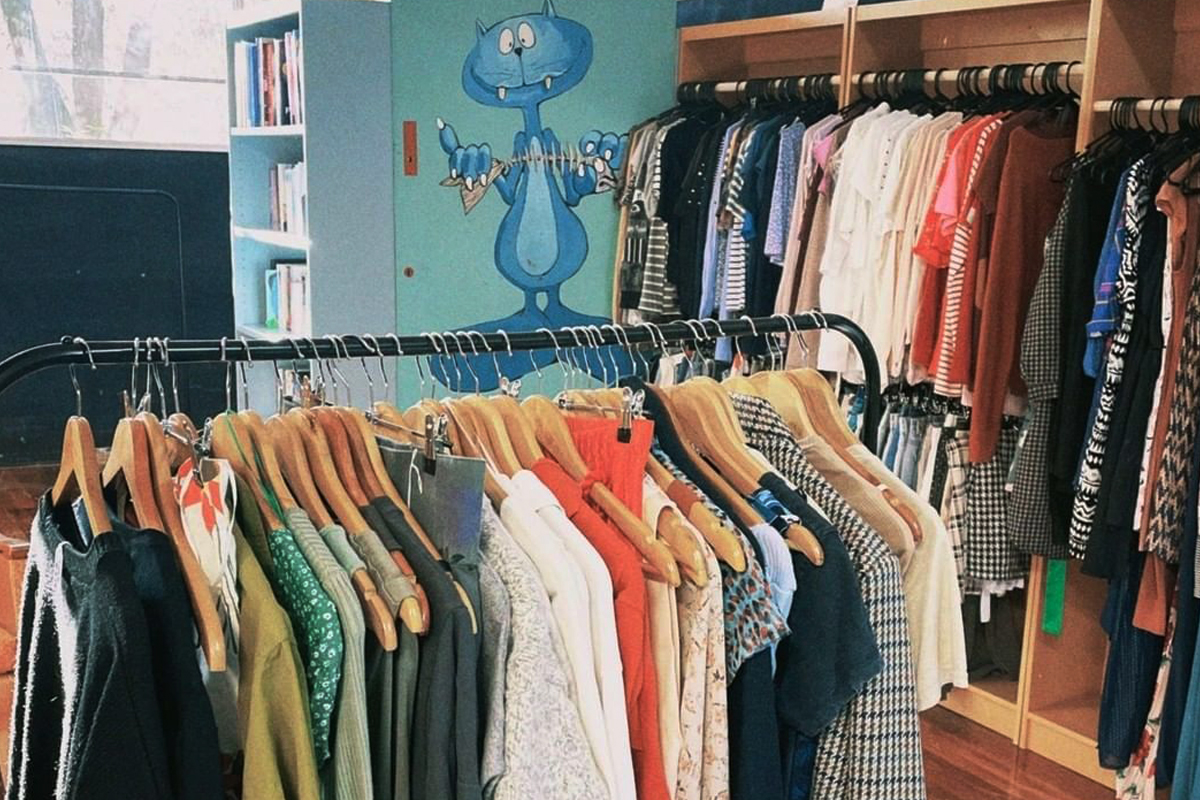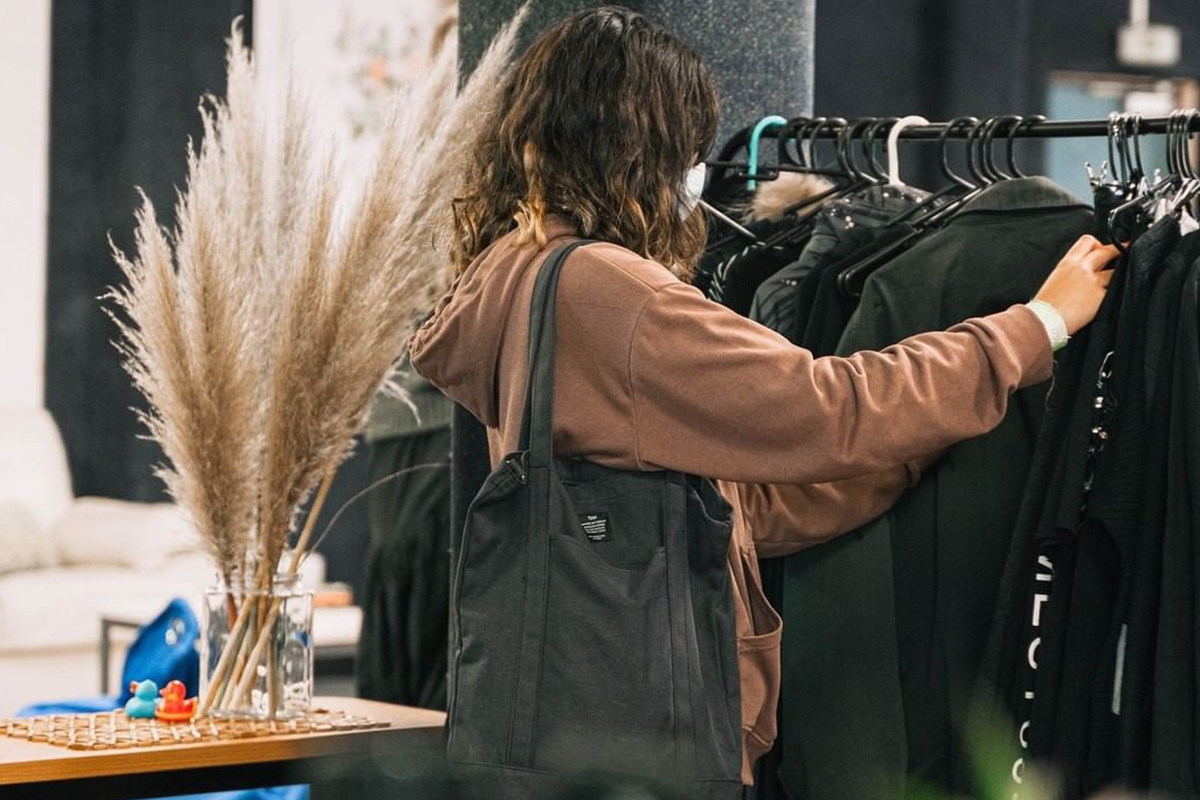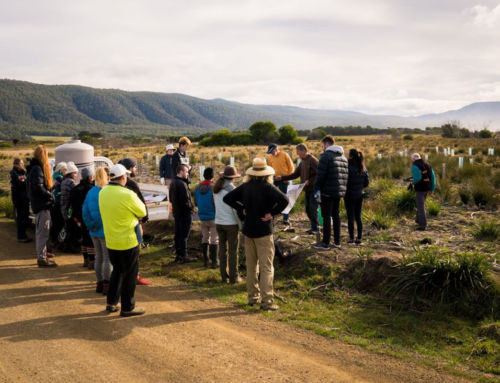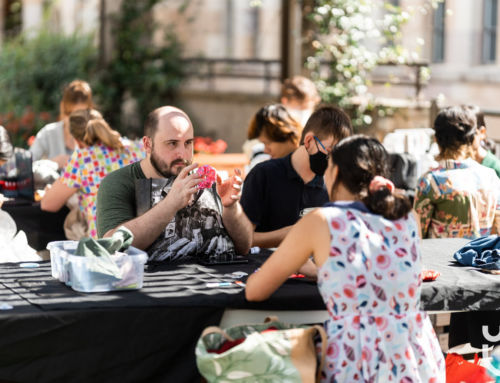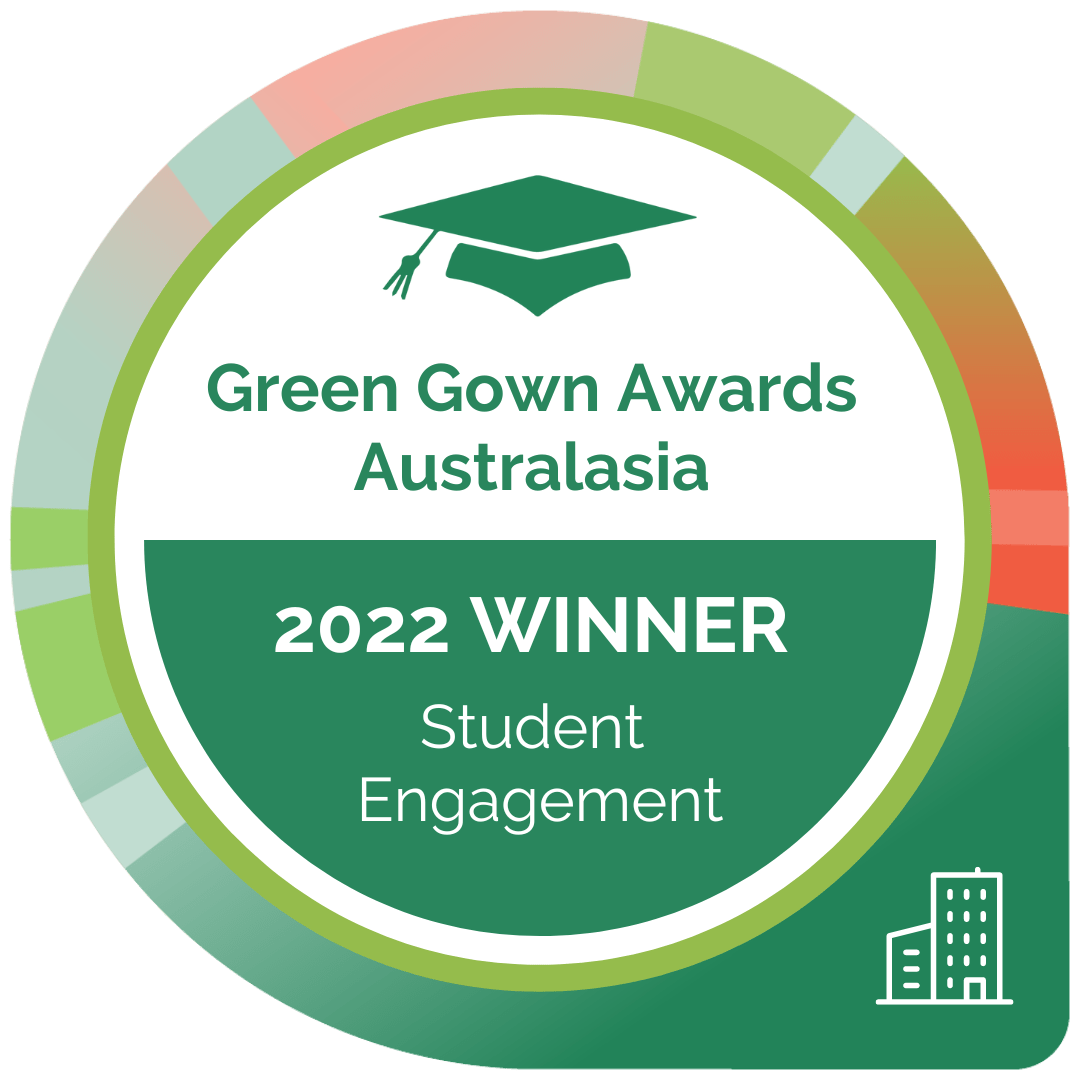
Te Oraka – The Good Space
Te Oraka, The Good Space was designed by our student team for students and staff on campus. This sustainability hub showcases the circular economy – created from recycled items, it pours all its income into activities it hosts.
Te Oraka focuses on reducing waste because our students have relied heavily on skips, highlighting a need for alternative options as well as a focus on tools and skills throughout the year.
Te Oraka was devised to capture a holistic approach to waste. Creating a space that can be transformative for waste minimisation through being used as a store, workshop, refilling station, repair café and an education space.
We believe our multi-faceted approach, tailored to our needs, is leading by example in New Zealand’s tertiary sector, and possibly Australia’s.
> The initiative
Te Oraka – The Good Space is a new area designed as a sustainability hub by students for students and staff. It is on the edge of our main campus in Dunedin, in Anzac Avenue, and launched in May this year. Te Oraka is open every Tuesday and Thursday from 11am to 1pm.
Thought the year the space houses a thrift shop that is also set up to host events, which teach people new sustainable skills, educate them about sustainability and sustainable options, and also enable a circular economy in other ways (by repairing, reusing, and refurbishing). At the beginning an end of the year the space hosts the “Drop for Good” initiative, which is a collaboration with our student association to collect the contents of the student flats being vacated, store it over the summer, then resell to fit out student falts the following year. In summer 2021/21 we estimate 8o tonnes of waste was diverted from landfill due to Drop for Good.
The shop sells second-hand clothes, furniture, kitchenware, and bedding. Only three months after opening, the activities at Te Oraka already include:
- Bike grabs at the same time every Tuesday – students pay koha (a donation) to own a bike that has been reclaimed from landfill and refurbished
- Regular thrift shop sales and donations
- Workshops on making reusable menstrual pads, which also tackles period poverty
- Stocking local sustainable brands (Coral Cone menstrual cups supplied to Te Oraka at a reduced price point which also tackles period poverty, student small businesses: Swooping Tui homemade skin care and Mimi Collective sustainable candles)
- Student sustainable business development (Night markets allow students to test their small businesses by selling their products)
- Student group events
- Tetrapak and electrical recycling
- A refill station e.g. for hand soap, dishwashing liquid and laundry liquid
- Contributing to Repair Café Aotearoa national database by running bicycle repair workshops
- Drop and Swaps, where someone donates to the thrift shop, the items are checked to ensure they are of the appropriate quality, then for every three items accepted, the person can ‘swap’ something out of the store for no charge.
- Support the behaviour of trading rather than simply buying new.
- Teaches our student and staff communities the value of pre-loved and not becoming a space that simply sits between an individual and the skip – meaning we stock good quality items that work and will last.
- Providing ‘work’ and skill-building opportunities for students’ skills who volunteer to ‘work’ at the thrift shop
We also have more plans for Te Oraka, including selling portable planter boxes containing vegetable plants at a reduced price so students and staff can grow their own, clothing repair and alteration workshops, repurposing workshops, queer events and electrical repair cafés etc.
The name Te Oraka – gifted by our University’s Office of Māori Development – loosely translates as meeting all your needs (physically and spiritually), which is particularly appropriate because we are guided by the Māori health model, Te Whare Tapa Whā. For the space to actually make a difference, we had to consciously consider our students’ needs, how staff could support them, and how the space could empower our community. We wanted to enable students and staff to choose options that align with the things they care about most.
Through our sustainability mahi (work) – including student and staff engagement – we have seen the positives that flow from simply creating spaces. Expecting to engage with people in any place, at any time on campus is not sustainable and can increase climate anxiety. Creating inclusive spaces where students and staff feel safe to engage is important to ensure hard conversations can be had, solutions can be encouraged, and skills learnt. This vibrant space was curated to ensure it remains safe and inclusive, with support from Dunedin Pride and the Otago Disabled Students Association.
Why such a prominent focus on waste? Our University student community has had a high dependence on skips during the year – particularly at the start and end of every year – highlighting a need for alternative options, along with new tools and skills. Te Oraka was designed to take an holistic approach to reducing waste.
> Environmental and social benefits
The benefits seen through operational outcomes:
- Our University’s Recycling Centre gets inundated with used dated furniture no longer suitable for our workplace but not ready for the skip. Te Oraka now offers a space for staff and students to pay very competitive prices for furniture – e.g. desks, office chairs, filing cabinets, shelves etc – that are perfect for homes, flats, or garages rather than the furniture collecting dust and then ending up in the landfill. This gives those items a longer life and helps create more equitable access to household goods.
- Students and staff see a working model of the circular economy.
- Estimated 80 tonnes of waste are diverted from landfill per year through supporting Drop for Good initiative.
- Encouraging sustainable practices among staff and students so it becomes the norm, and they encourage the next generation to do the same.
- Money spent in our community to buy from Te Oraka is going back to our community. Good donated by our community are going back to our community.
- Students and staff knowing more ‘easy grabs’ they can use to be more sustainable, learning new skills, saving money by buying second-hand, and being enabled to buy local.
- Hopefully our efforts go some way to reducing students’ ad staffs’ online shopping (which increased during the pandemic, with clothing and footwear leading the way)
- Hopefully our efforts help decrease the consumption of mass production as it often involves human rights costs and environmental costs (chemicals, dyes, and water use etc)
- Items are locally sourced, not transported long distances
- The Bike Grabs have raised hundreds of dollars for Malcam Trust (which repairs and refurbishes the bikes), a Dunedin-based youth development trust that helps young people make good life choices, set goals and build their confidence
The benefits seen through environmental and social outcomes:
- Peer-to-peer engagement and support
- Empowering students, staff, and community groups to create change
- Providing more accessible and more affordable solutions to being sustainable
- Reusing clothing, furniture and kitchenware that may have gone to landfill otherwise
- Staff supporting students at another level – staff regularly arrange drop-offs of quality clothing, household items and office supplies which has created a genuine relationship of support between staff and students
- Strengthening our relationships with other groups who use Te Oraka for their events or to facilitate workshops etc
- Providing work and skill opportunities for University of Otago students and Otago Polytechnic students, who have volunteered to ‘work’ in the thrift shop
- People enjoying the space and hanging out there
- Our University provides spaces for our wider community to thrive
The benefits seen through sector benefits:
We are leading by example in the tertiary sector in New Zealand, and possibly in Australia.
> Leadership and engagement
The launch of our Sustainable Strategic Framework in 2017 prompted our then Vice-Chancellor to promise our University would be “boldly sustainable”. We have not seen something like Te Oraka so did not have a working model and could be bold in the type of space we created to meet our community’s own, unique circular economy and sustainability needs. We are not only staying true to our previous Vice-Chancellor’s promise, but are also building a strong community around sustainability, through increased visibility, vitality, and action.
We believe it is unique in New Zealand – and possibly Australia – for one tertiary space to be the base for so many circular economy and sustainability activities, as a ‘living lab’ that shows the circular econonomy in action while also benefitting other areas of the University. And Te Oraka can only grow as more fresh minds join our community.
Our application so far has highlighted the activites which have found a home at Te Oraka.
> Significance to the sector
Our unique project has, in its infancy, showing not only the success of creating spaces like Te Oraka but also the need to normalise creating these spaces, especially on tertiary campuses. It is unfair to expect us to just engage with students and staff on campus anywhere, at any time. Recognising sustainability topics can increase climate anxiety and knowing creating spaces where students feel safe to engage is important to ensure hard conversations can be had, solutions can be encouraged, and skills can be learnt.
Our space connects to individual people in a new, multi-dimensional way, as our comments to this point show.
> Wider societal impact
The wider societal impact we have seen from launching Te Oraka includes:
Increased social sustainability education and reduced inequalities
Sustainable solutions can sit in a space of privilege, especially when engaging with themes of reusable items, thrift shopping choices, and access to sustainable alternatives. By creating easily accessible, more affordable access to good quality household items and clothing, sustainable solutions have reached a wider demographic of students and staff.
To combat period poverty, Te Oraka works with local menstrual cup brand Coral Cone, a safe and thoughtfully designed alternative that sells its product in Te Oraka at a reduced price point. We have also worked to host reusable pad making workshops more regularly during Semester 2 so people who menstruate can create a reusable pad kit for only $6.
The space also has a refilling station that offers hand soap, dishwashing and laundry liquid for a low price point, so students and staff can refill their jars and bottles with good quality products that are consciously made with the planet in mind.
A project designed by a student will be launching in Semester 2 to provide students and staff with affordable food. Portable planter boxes containing winter vegetable plants will be sold for $10 each and will have all support needed to have this veg thrive in flats and homes that cannot have permanent in-built planter boxes. In summer, we provide new vegetable plant options to grow.
Community support and buy-in
In its infancy, Te Oraka has already established strong links with local and national projects to support wider impact. Our Sustainabilty Office has always played a collaborator role and now Te Oraka provides a space that can be used more widely than we could have imagined. At this point the space is supporting:
- RAD laptop and tablet recycling
- One Coast tetra pak recycling for Saveboard
- Repair Café Aotearoa national database
- Mindmade Reusable Pad workshops
- Malcam Trust Bike Grabs and repairs
Bi-cultural inclusion
Te Oraka is a space that advocates for our Māori community and allies. As a rule of thumb, our team ensures all events, workshops and campaigns remain culturally sensitive and meet tikanga (Māori practices) requirements. This small but notable step is our starting point for bringing sustainability and indigenous knowledge together at ground level. Our Sustainability Office collaborates with our University’s Office of Māori Development at a strategic level.
COVID-19 learnt values
We have noticed student and staff morale has been low during the COVID pandemic in New Zealand and burnout is very real across our student and staff communities. Our team is using Te Oraka as a space that is consistently active and promises both students and staff they will more opportunities to get involved if they are unwell (physically or mentally) that week. This reduces disappointment or guilt about missing out on what Te Oraka is offering that week and reduces the mental load many people are already carrying.
Mental health and wellbeing support
When harnessing sustainable change, it is important students lead conversations about the daily struggles students face with stress, flatting, financial difficulties, academic challenges etc. When people feel stronger internally, they can care more about life outside themselves, so our team ensures the Te Oraka space, its campaigns and events visibly support and underline mental health and well-being. This created better connections with groups and individuals who may be struggling in these spaces and has helped empower them.
> Wider societal impact
Te Oraka offers work and skill-building opportunities for University of Otago students and Otago Polytechnic students. We have already had volunteers from both ‘working’ in the thrift shop. Through these opportunities, students gain qualities that supports our University’s aim to foster the following attributes in all of our students:
- GLOBAL PERSPECTIVE: Appreciation of global perspectives in the chosen discipline(s) and the nature of global citizenship.
- COMMUNICATION: Enhanced ability to communicate information, arguments and analyses effectively, both orally and in writing.
- CRITICAL THINKING: Ability to analyse issues logically, to challenge conventional assumptions, to consider different options and viewpoints, make informed decisions and act with flexibility, adaptability, and creativity.
- ENVIRONMENTAL LITERACY: Basic understanding of the principles that govern natural systems, the effects of human activity on these systems, and the cultures and economies that interact with those systems.
- CULTURAL UNDERSTANDING: Knowledge and appreciation of biculturalism within the framework of the Treaty of Waitangi; knowledge and appreciation of multiculturalism; and an ability to apply such knowledge in a culturally appropriate manner.
- TEAMWORK: Ability to work effectively as both a team leader and a team member.

